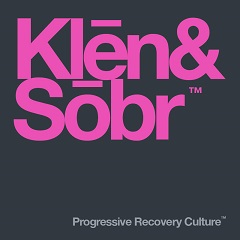Greatness
Teachers do more than just teach.
The most teachable moments are not the ones on the lesson plan. Teaching is what occurs in between the lines of notes you make for the day, in the tangents and side conversations. How can that be true? Think about teenagers and reverse psychology. Moments become more teachable when you can deviate from the script, not stick to it.
I have been approaching one situation in particular over the last few years: how to moderate the GOAT debate.
You’ve heard it if you’ve spent anytime with teenagers over the past decade.
Messi or Pele? Brady or Montana? James or Jordan?
At first, I hoped to reach kids on the futility of having this debate at all. I’ve warned them that greatness is not a quality that extends across decades with consistency. It’s like discussing what is cool in life. Coolness is the one thing everyone wants but no one can define. It derives from a select moment in time, but is suspectable to innumerable factors—too many to track, let alone debate.
Greatness is similar. Before deciding who is the greatest, you have to determine what greatness is, I tell them. Is it accolade-based? Can you measure it by going to stat-sheets? That’s what young people most often do. They compare rings or scoring titles.
They’re ready to take it further than that, too. They are ready to compare, say, how James played against Curry to how Jordan played against Olajuwon. This is usually where I think I have them. I tell them that once greatness becomes a relative metric, something that changes depending on the other variables you include, you really should just end the debate entirely. You can’t look simply at matchups of 2 players in a game as team-oriented as basketball. It’s a 5-on-5 system. It’s always going to be the 5 best not the best 5 on the court. And greatness (if based on championships, for example) will depend on the player’s fit, not shearly his abilities.
So, if you want to compare across decades, you’ve really got to peel apart the entire onion. That’s when I tell them that they should probably just let it go, unless they want that onion to make them cry in front of their friends.
As moderator of any debate with my students, my goal is never to convince them I am right.
I don’t take particular sides for this very reason. My goal is to get them to think about what they are debating in ways they haven’t before.
What happens far too often in these lunch table discussions is that students just repeat back what they heard some pundit say the night before. So, while they think they are being smart, they are only parroting someone else’s thoughts.
The lesson in these moments is never about how to argue or what to argue. The lesson is to think. Getting students to think is always the goal.
But the debate continues. As much as I encourage them to consider what they are saying, they just keep spewing the same old pundit stuff.
I tried a new tact last week.
I told them that greatness is something you have to experience.
I brought up Michael Jordan for my example. Forget all the stats and the comparisons, when he had the ball in clutch situations, there was a certain feeling you had. You knew he was going to hit the shot. And most often, he did. You can only have that feeling if you’re following the sport and knowledgeable of each possession’s consequences.
“So greatness is only being clutch?” They set the trap.
“Of course it isn’t,” I reply. It has to be more. If it weren’t, Paul Pierce would be the GOAT. And he’s not even in the conversation.
What I wanted them to consider, though, is that you cannot claim to know who the greatest of all time is if you haven’t experienced their greatness. Not that you have to be on the team with them—although that would be the ideal way to decide the matter. Not even that you have to have witnessed them play in person—although that too would be preferable. You just have to be of that era.
When students nowadays look back on Jordan, all they see is facts and figures and highlights. That’s not an experience of his play. It’s diluted. It’s watered down and bland. It lacks flavor. Greatness is not one of those qualities that you can so easily pinpoint.
I tried to explain to them what it was like to experience Michael Jordan play. And I compared that to something I saw Lebron James recently do: take a needless flop into the stands on a loose ball. I explained to them I never saw Jordan do a single thing that wasn’t for the game, whereas I have definitely experienced James do things that distract from the game.
And that’s when I lost them. All I hear of is how Jordan got beat up by the Pistons or how James won with multiple teams. Thankfully, I won’t have to wait long to moderate the debate again.
What does it mean to be great?
As moderator, I’ve learned a few things.
Greatness likely means to live on in the lives of others. And when you’re in the running for the greatest of all time, you are likely to remain in the lives of others for as long as debates about sport will rage.
But what about those of us not gifted with million-dollar abilities? There are other ways to remain in the lives of others.
Each year, as a teacher, I try to create more long-lasting impressions on my students. This mission becomes clearer as my experience grows. I used to think teaching was about driving content. But driving content, if not done right, is an enemy of lasting impressions. Driving content can create short-term memories—the kind, say, that show up will on tests—but I’m after something more, something greater.
Books are a great forum to create long-lasting impressions because they model personal experience. Students will remember stories because they appealed to them in a profoundly intimate way—and those students can return to those impressions for a lifetime.
True greatness needs no acknowledgement. Or, in other words, greatness does not pursue acclaim; it pursues what is great.
I need constant reminders that students won’t acknowledge what is great about class. That’s not my aim. While it would help the instant-gratification button in my brain, it is not an indicator of greatness.
What sort of impression are you leaving behind on those you interact with?
Is it the sort that will last?
My feats in the classroom will not reach the masses like Michael Jordan’s successes. Neither will yours, most likely. But each day gives all of us the option to try to do something great.
And that’s enough for me.

 Previous Post
Previous Post Next Post
Next Post












Wow this was helpful because we often celebrate great accomplishment never great opportunities